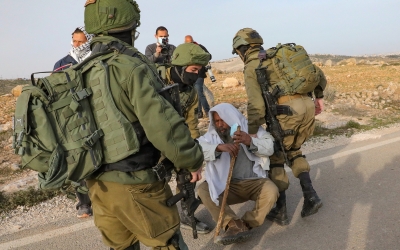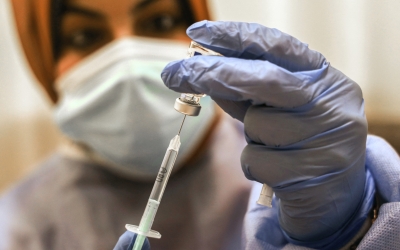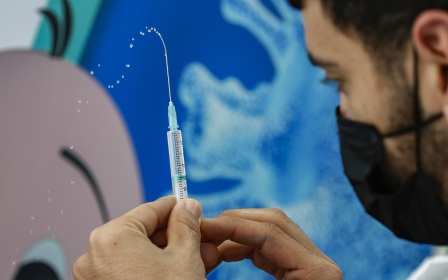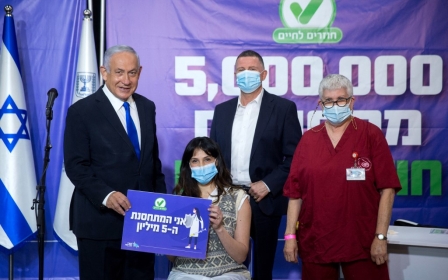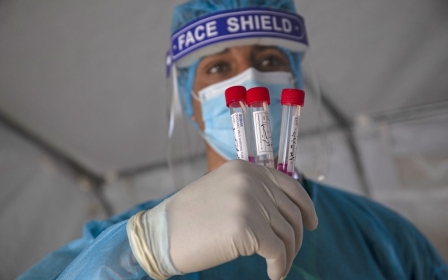Covid-19: West Bank receives first Covax vaccine doses
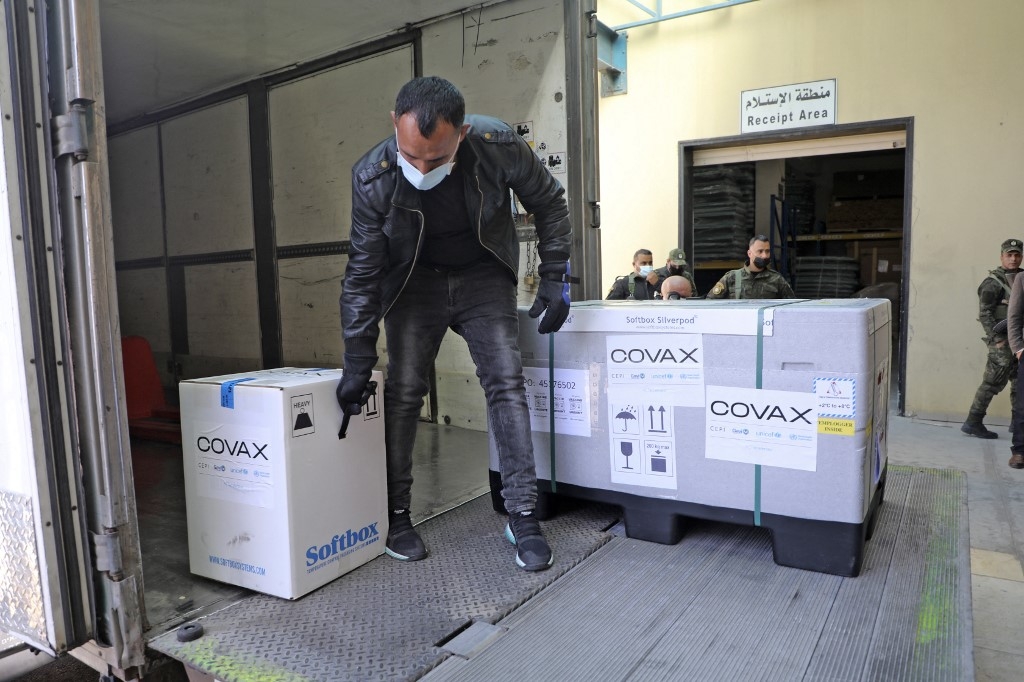
The Palestinian Authority received its first batch of vaccines from the World Health Organisation's sharing initiative, adding 62,000 doses to the occupied West Bank's lagging inoculation programme.
The WHO's Covax initiative on Wednesday delivered 38,000 doses of the Pfizer/BioNTech vaccine in addition to 24,000 AstraZeneca shots, developed by Oxford University.
New MEE newsletter: Jerusalem Dispatch
Sign up to get the latest insights and analysis on Israel-Palestine, alongside Turkey Unpacked and other MEE newsletters
With several countries reporting rare and isolated cases of bleeding, blood clots and low platelet counts after administering AstraZeneca's vaccine, Health Ministry spokesperson Kamal al-Shakhra said that the PA would withhold those doses "until there is a scientific decision from the World Health Organization".
On Wednesday, the WHO said that it considered "the benefits of the AstraZeneca vaccine outweigh its risks and recommends that vaccinations continue".
The West Bank Health Ministry said it would give the initial shipments of the vaccine doses to medics and health personnel, cancer and kidney patients and people over the age of 75.
The occupied West Bank, where 3.1 million Palestinians live, has reported 146,359 coronavirus cases, with 1,667 deaths.
The vaccines arrived through Tel Aviv with permission of Israeli authorities, which control all imports and exports as well as freedom of movement within both the West Bank and Gaza.
Outrage and controversy
Before Wednesday's shipment, the PA had received a total of 12,000 doses of Covid-19 vaccines.
The first 5,000 doses were donated by Israel in February following international outcry over Israel's reluctance to include the occupied territories within its own vaccine rollout, which has been dubbed one of the most effective in the world thus far.
The West Bank-based PA sent around 2,000 of those doses to Gaza, but the shipment was initially blocked for several days, as Israel "waited for a political decision".
Israel later began inoculating Palestinian labourers with Israeli work permits, vaccinating about 90,000 of the 120,000 registered workers.
Meanwhile, Health Minister Mai al-Kaileh on Wednesday expressed concern over the high percentage of positive Covid-19 tests and high hospital occupancy rates in the occupied West Bank, the PA's official Wafa news reported.
Kaileh said overall hospital occupancy rates had reached 110 percent last week, while Ramallah, al-Bireh, Jericho and the Jerusalem suburbs had reached 115 percent.
She added that the occupancy rates in intensive care units were high, with more than 44 percent of critical Covid-19 patients relying on respirators.
She went on to say that a mother and her infant died from the highly contagious virus, the second such case in the occupied territories.
Meanwhile, the PA has been criticised for its administration of the vaccine, as political and security figures from within the government were some of the first to receive jabs.
According to a statement released earlier this month, those who received the vaccine included PA ministers; presidential and ministerial security personnel in direct contact with PA President Mahmoud Abbas and Prime Minister Mohammed Shtayyeh; members of the Palestine Liberation Organisation (PLO) Executive Committee; workers in the Central Elections Committee; employees of a number of Arab embassies in the occupied territories; players in the Palestinian national football team; as well as 100 students heading abroad.
The ministry's statement was met with widespread criticism from Palestinian citizens and NGOs, as it flew in the face of previous assurances that medical personnel, the elderly, and chronically ill patients would be given priority in vaccination.
Middle East Eye delivers independent and unrivalled coverage and analysis of the Middle East, North Africa and beyond. To learn more about republishing this content and the associated fees, please fill out this form. More about MEE can be found here.


